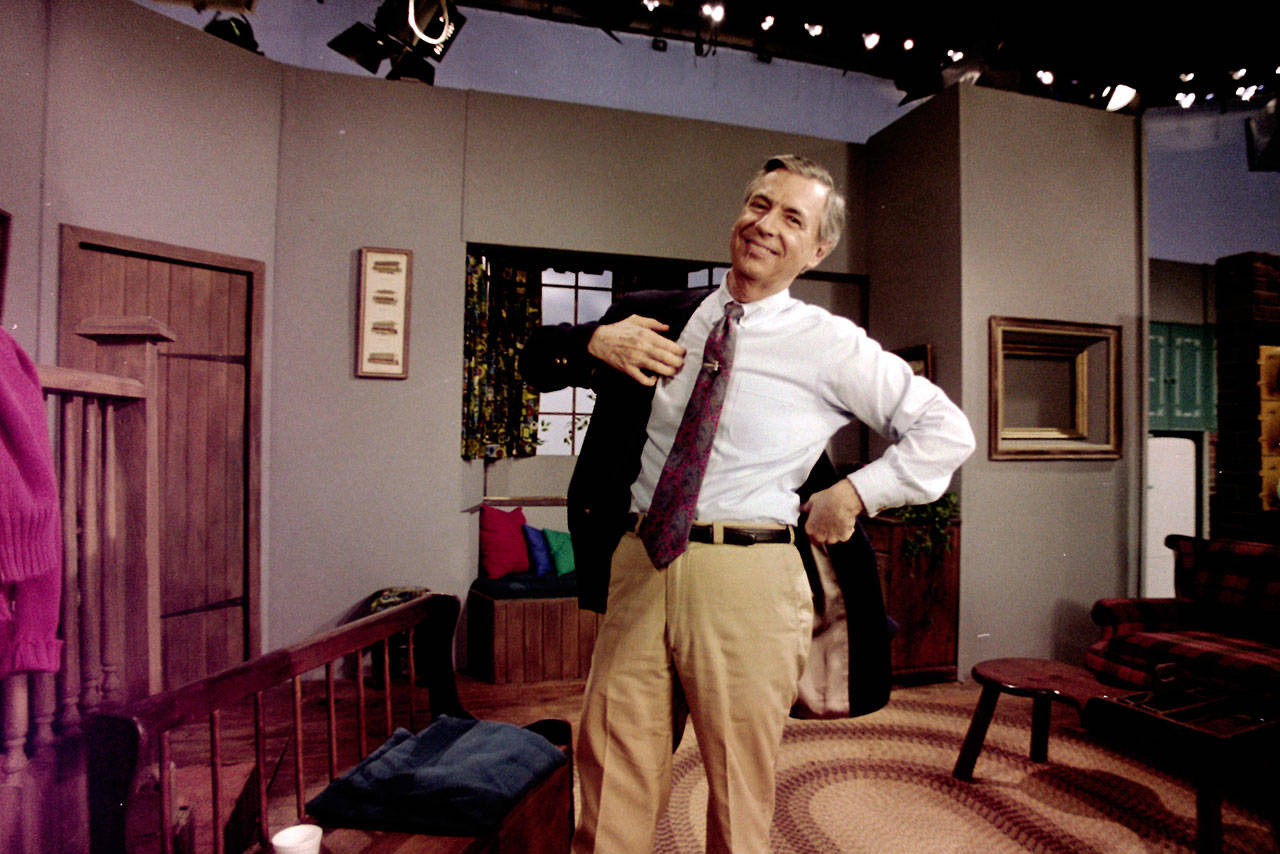By Martha Manning / For The Washington Post
I used to hate Mister Rogers. You could fit an entire script for an episode on an index card because nothing happened. Fred Rogers opened the door and immediately changed his clothes. While he talked, he took his somewhat ratty sweater from his fake closet and slowly put it on. For some reason, he had to change from his regular shoes into sneakers, though there was no significant physical activity on the show.
He had puppets that looked like my grandmother made them, and he made negligible efforts to disguise his own voice when they “spoke.” He sang songs that I swear he made up on the spot, such as, “You are my friend, I like you, you are my friend, you have such good ideas.”
“Fred,” I would yell silently as I watched his show with my daughter, “You need to speed things up.” “I’m losing my mind here.” “I’ve got stuff to do.” “Talk faster. Don’t leave those long pauses where people are supposed to answer your questions or reflect on your ideas.” “Put some flash into the ‘Neighborhood.’ ” “It’s boring.” “And, for god’s sake, stop looking into the camera like you’re peering into the eyes of your viewers. You’ve got my kid hypnotized.”
He talked about feelings, about kindness, about differences among people, about anger and abandonment. He talked about isolation and pain. And then, mercifully, he changed back into his jacket. He slowly pulled off his sneakers one at a blasted time and replaced them with his shoes. The signal of my impending liberation was his closing song, “It’s Such a Good Feeling” My daughter insisted I sing along. And as the credits rolled, she did the very same thing every day. She sighed. A sigh of quiet contentment that I couldn’t understand.
But then I suffered a depression.
Suddenly, watching TV with my daughter was one thing I could accomplish with little effort. Mister Rogers started talking to me. He spoke slowly and softly. He left spaces to think. He soothed me with his unflappable manner. When life was hard, he said so. He never promised magic. Sometimes things happened that were terrible. Maybe it wouldn’t get better. He grappled aloud with that distressing reality. He banished blame and relieved the burdens of children who took the weight of the world on themselves.
Mister Rogers spoke to the terrified, lost child in me:
“People have said, ‘Don’t cry’ to other people for years and years,” he said, “And all it has ever meant is ‘I’m too uncomfortable when you show your feelings.’ … I’d rather have them say, ‘Go ahead and cry. I’m here to be with you.’ “
As I lost my footing even more, it was beginning to show at work and at home. I’d never been in situations where I so consistently failed to meet my goals. And when I missed the mark, I was so much kinder to my family, my friends, my students and my patients than myself.
But Mister Rogers said, “Some days, doing ‘the best we can’ may still fall short of what we would like to be able to do, but life isn’t perfect on any front; and doing what we can with what we have is the most we should expect of ourselves or anyone else.”
Mister Rogers gave comfort. He didn’t sell it. He didn’t knock us over the head with it. It wasn’t cool or sexy or easy. He considered the space between the television set and the viewer to be “sacred,” something millions of children understood; and that their parents forgot.
That’s a shame, because we were the ones who needed Mister Rogers’ wisdom most of all. The big words, long explanations and instructions about how to be and what to do that we favored often gave us little solace. Instead, we needed an honest voice who considered the darkness and met it with hope, who recognized self-hatred and met it with compassion.
As a child, Mister Rogers became extremely frightened by something on the news and wondered how he would ever be safe. His mother gave him simple but profound advice. “Always look for the helpers,” she told him, with the quiet certainty that they could always be found. Who are the helpers right here, right now, in our troubled lives?
I wept the day Fred Rogers died. And I will always answer a solid “yes,” when he reaches out past the knobs and the wires and screen and asks, “Won’t you be my neighbor?”
Martha Manning is a writer and clinical psychologist whose books include “Undercurrents: A Life Beneath the Surface” and “The Common Thread: Mothers, Daughters and the Power of Empathy.”
Talk to us
> Give us your news tips.
> Send us a letter to the editor.
> More Herald contact information.

























